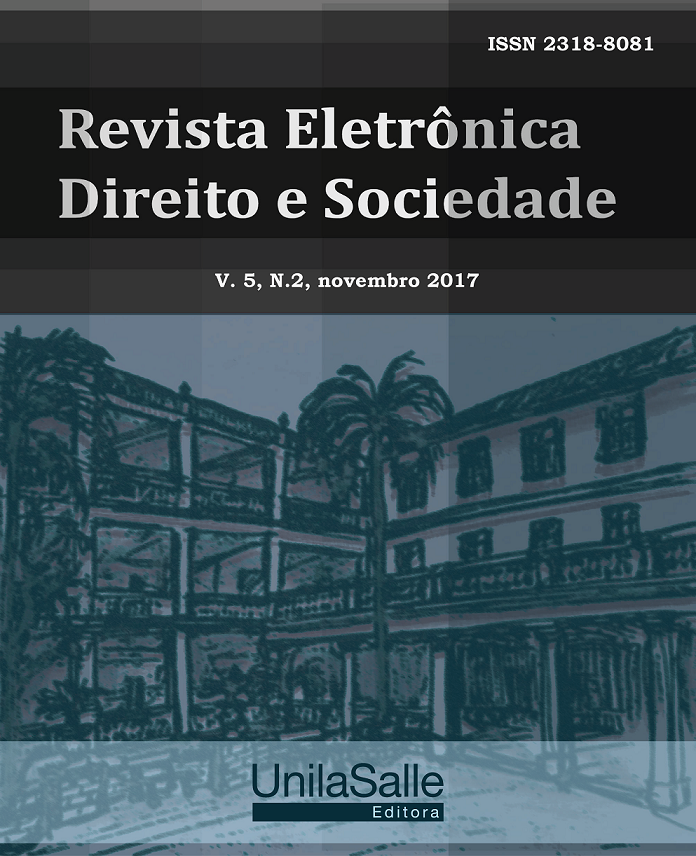Émile Durkheim and de sociological analisys of law: the actuality and the limits of a classic
DOI:
https://doi.org/10.18316/redes.v5i2.3851Keywords:
Sociology of Law, Émile Durkheim, Law, Society, Modernity.Abstract
This article intends to analyze the contributions and the limits of Émile Durkheim’s sociological approach to the understanding of law. Thus, in the first place, it underlines the relevance of Durkheim’s thinking in the configuration of modern sociology. To do so, it makes a brief incursion into Danilo Martuccelli’s analysis of the matrices of sociological thinking about modernity. Then, from the reconstruction of some fundamental aspects that structure the thesis of the book De la division du travail social, it emphasizes the centrality that law acquires in the thought of Durkheim. In this way, it underlines, above all, that Durkheim conceives law as an external fact that symbolizes the forms of social solidarity (mechanical and organic). Finally, it recovers some critical appraisals that contemporary theorists make about Durkheim’s sociological analysis of law.Downloads
Published
Issue
Section
License
Authors who submit their manuscripts for publication in the “REDES” Magazine agree to the following terms:
The authors claim to be aware that they retain copyright by giving “REDES” the right to publish.
The authors declare to be aware that the work submitted will be licensed under the Creative Commons Non-Commercial Attribution License which allows article sharing with acknowledgment of authorship and publication in this journal.
The authors declare to be aware that by virtue of the articles published in this journal have free public access.
The authors declare, under the penalty of the law, that the text is unpublished and original and that they are aware that plagiarism has been identified, plagiarized authors will be informed - willingly, to take legal action in the civil and criminal sphere - and, plagiarists will have their access to the magazine blocked.
The authors state that - in case of co-authoring - all contributed significantly to the research.
Authors are obliged to provide retractions and (or) corrections of errors in case of detection.
The authors are obliged not to publish the text submitted to “REDES” in another electronic journal (or not).
The Electronic Journal Law and Society - REDES - is licensed under a Creative Commons License. Attribution-NonCommercial 4.0 International.Based on work available at "http://revistas.unilasalle.edu.br/index.php/redes/about/submissions#copyrightNotice".
Permissions in addition to those granted under this license may be available at http://creativecommons.org/.

